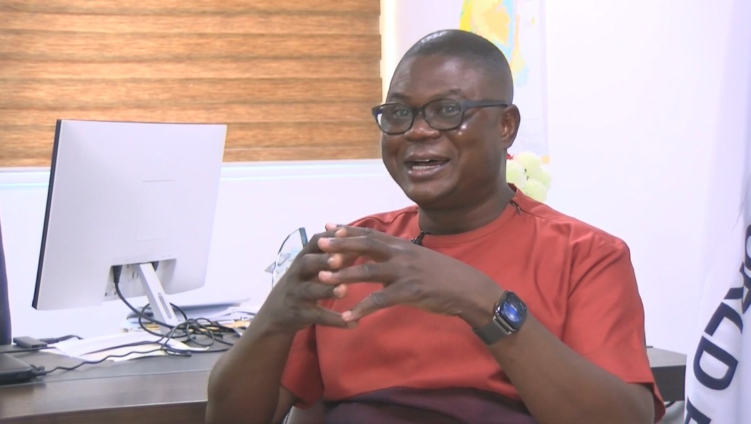Government is set to commence an enhanced vegetation and reclamation project in response to the catastrophic destruction of vegetation cover by illegal gold mining activities.
JoysNews in a hotline documentary produced by Erastus Asare Donkor highlighted how aquatic life and forest reserves are being destroyed in search for the minerals.
Following these revelations and the increased pressure on government to redress the havoc, government in collaboration with the World Bank will be rolling out a comprehensive response programme to deal with the menace of illegal mining, especially in respect of closing many pits which remain uncovered on illegal concessions, making it impossible for economic activity.
National Coordinator for the Ghana Landscape Restoration & Small Scale mining, Dr John Krugu, speaking on The Pulse on JoyNews, Thursday said, "at the moment, we are working on some five thousand hectares, but they are not closed yet because we have to ask and answer all the questions”.
When asked by host Blessed Sogah what the emerging challenges were, Dr. Krugu indicated that although Government has secured funding from the World Bank to reclaim about five thousand hectares of these lands, it is now faced with the challenge of identifying owners, plus getting an assurance that these parcels of land will not fall back into the wrong hands for illegal mining.
“You see those dugouts around the country? If it was just to do with political reasons, by now probably all those pits would have been covered. However, we were given the directive that, number one, they don't want us to go and reclaim land and tomorrow the same land has been turned over again” he said.
The coordinator added, “so we must be able to define that it is a mined out area. That's a technical term. That means that it is barren, it is empty.
That is not an easy thing to do, but that is the task we have been given to do. So we must make sure that it is defined as mined out. If it is not defined as mined, now we must be able to measure the mineral, the remaining mineral content and give it out for community mining with the hope that it will either be mined out completely. You know, in this country we have a complicated land tenure system, so somebody owns that land.
We need to know whether you give that land out for that mining to have happened or this was taken by force. When we reclaim it. Where should it go? Should it come back to you or to the state you know, those kinds of questions are not easy to answer”.
Dr. Akrugu further explained that, “if you are going to do that whole work, finish and re-vegetation, then what you don't want is that in five or ten years’ time you go back there and the whole place has been dug out.
There is a study and you can look for it that says that some people believe that gold gives birth. If you are not careful in a few years’ time, they go back to check whether it has given birth as the children have grown and they will remove every cover on it”.
Latest Stories
-
Shacman H3000S: Power meets unmatched driver comfort in Ghana
50 seconds -
24-Hour Economy is a game-changer – Edem Agbana
1 minute -
Hearts transfer ban will be resolved soon – Didi Dramani
2 minutes -
Huawei introduces industry-first hybrid cooling energy storage system for commercial and industrial customers
5 minutes -
Why should we import ‘Aboboyaa’, disc ploughs? Goosie Tanoh proposes solutions under 24-hour policy
10 minutes -
Didi Dramani eulogizes Atalanta star Kamaldeen Sulemana
16 minutes -
High-level international event in Geneva addresses escalating crisis in Sudan
18 minutes -
Inflation is falling, so why aren’t prices?
23 minutes -
Government releases US$300m to service Eurobond debt today July 3, 2025
37 minutes -
Dozens sign up for 2025 JoySports Invitational Tournament
37 minutes -
Didi Dramani reveals vision for Hearts
39 minutes -
McDan Group signs up for 2025 JoySports Invitational Tournament, promises to win 60% of the trophies
45 minutes -
9th Women in PR Ghana Annual Summit focuses on Ethical Storytelling
45 minutes -
T-bills auction: Government to borrow GH¢3.36bn on July 3, 2025
52 minutes -
Education system failure fuelling indecent dressing by students – Wonder Madilo
54 minutes

